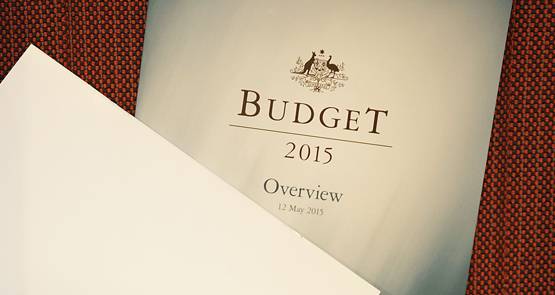
Little-known fact: as you read this, senior bureaucrats are plotting how to spend your money for the next four years. And they don’t want your input.
The budget comes out in May, but preparations are already in full swing. Departments have written submissions to the Expenditure Review Committee, which will consider them very soon. But these discussions happen behind closed doors, with the public left completely in the dark about what’s to come.
As described in Peter Hartcher’s third instalment of his five-part post-mortem of the Abbott government, the disastrous 2014 federal budget (widely seen as the first domino to fall in a chain that would end with Turnbull’s coup) was written largely by Tony Abbott and Joe Hockey, with ministerial thought bubbles — and no public consultation:
“The prime minister presided over every major element of that budget, and every major decision …
“The prime minister personally proposed and sponsored the $7 Medicare co-payment.
“Christopher Pyne was the author of the university deregulation plan, but later complained that it was crippled at birth by conditions imposed by the ERC.”
The federal budget occupies a special place. It is supposed to be the only time the government makes spending decisions, and it means all priorities are rationally weighed against each other.
But that weighing happens behind closed doors. Nobody asks the people whose money is being spent, the people who have the resultant policy offered to them, pushed on them and done to them.
The budget is secret.
At Treasury, a big area on the fifth floor used to go into lockdown before the budget in order to keep everything secure. Budget secrecy was intense.
The budget lock-up is the ultimate symbol of this secrecy, and its most public manifestation. In six months I’ll be there in Parliament House on budget day. I’ll hand my phone over at midday and head inside, willingly participating in the grand pretence that letting slip a shred of the policy of our democratically elected government a minute before 7pm places that policy at risk.
And all this secrecy surrounds budgets that have been very bad indeed. The repercussions of this bad policymaking have been horrific, with some Australian citizens losing their jobs and one even forced to flee to the United States. The outcomes for us non-politicians have been somewhat better, only because the Senate has blocked a deal of bad policy.
But dropping bad policy on budget day is not exclusive to Messrs Abbott and Hockey. One pertinent example right now is the Howard and Costello decision to introduce a raft of superannuation tax concessions in 2006-07. That bombshell landed on budget day, and what consultation there was came afterward and was about implementation.
All this mess could have been avoided. Policy experts could not be more unanimous on the importance of consultation for good policymaking. Consultation is good! Of this they are sure. And they are just as sure that no consultation is bad.
And yet we accept budget secrecy as a matter of course.
This leads to curious intellectual contortions like that made by the head of the Prime Minister’s Business Advisory Council, who argued major policy change should be decoupled from the budget process.
But such a move would only undermine the role of the budget process in setting fiscal priorities. If policy change has to happen in public, let the budget happen in public too.
Ministers mainly object to consultation because it inhibits them doing what they want, and because it is slow. But successful policy is rarely made quickly. Two examples are the cash for clunkers scheme (formally the Car Allowance Rebate System), announced by Labor in 2010, and the mining tax. Both were foisted upon us as done deeds. Only the former was obviously bad policy, but both failed.
Consultation works in three ways. It kills bad ideas, hones good ideas and helps prepare the public for what’s coming. Consultation might have stopped cash for clunkers in its tracks and given the mining tax a chance. It can help our leaders make policy that both they and we want.
Among the various governments that have budget secrecy, that secrecy is coming under pressure and scrutiny. In the UK, India, and even the US, where budgets are already far more open.
Why is consultation now more important than ever? Because politics is changing; our Senate is splintered; politicians are more responsive to their national mood; citizens are more empowered. In short, democracy is showing signs of life.
The debate on GST is a great example of how consultation helps. We are discussing the tax publicly and learning a lot about the upsides and downsides of changing it. The electorate seems not to want it, and the government has probably learned enough from the public debate to not introduce changes. That’s an argument for consultation, and you’d have to be decidedly anti-democratic to see it as an argument against.
Opponents of serious consultation on the substance of policy seem to subscribe to a lazy and outdated notion that leadership is making us accept what we don’t want. It is not. Leadership is helping us to want what we previously did not want.
Changes to the GST will happen if a leader can lead the people to wanting them. Perhaps this will be impossible and instead we will make other, better changes. If so, all the better.
Leadership, done right, looks like followership. It certainly isn’t springing a whole lot of faits accomplis on the electorate on the second Tuesday in May.








Who’s it really secret from, though? Today’s Intercept ran:
“Congress Moves Again to Block Investigation of Congressional Insider Trading”
which you can add to years of research into the mysterious ways US sens/reps seem to outperform the market.
And there is of course no chance anyone could deliver anything to any group they would later “consult” for after retirement.